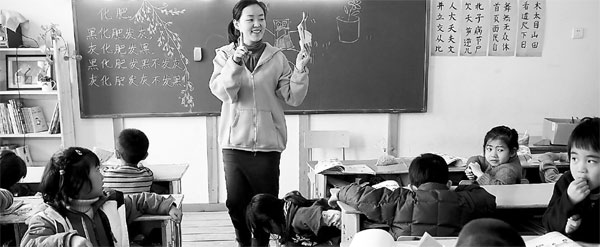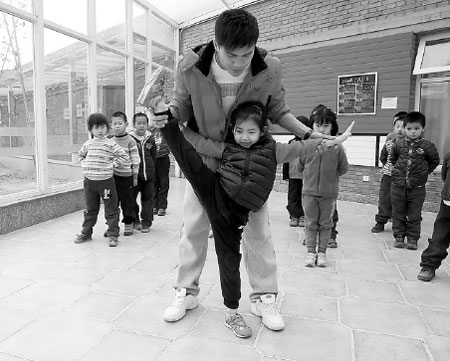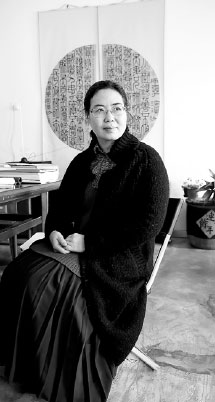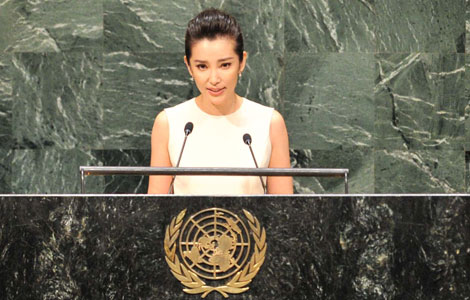Inspired mother pioneers freestyle education
Updated: 2014-10-07 08:27
By Deng Zhangyu(China Daily)
|
||||||||
Alternative teaching aims to cultivate creativity, personality and emotional intelligence, Deng Zhangyu reports.
In 2006, Zhang Dongqing decided to home-school her little girl and with three other families, she rented an apartment where she would teach their children. After eight years, the education pioneer is proud of the growing number of families that have embraced her educational concept.
Fruit trees in Beijing's suburbs surround the redbrick buildings that house Ririxin School. On the football field kids chase each other. Three boys look for insects in the grass while a girl draws a picture of fruit trees in the distance.
"Playing is the way children get to know the world," Zhang says while walking towards her office. During the short walk she was greeted by children running by, some of whom stopped to share their little secrets with her.
Unlike most traditional schools where teachers keep a distance from students, staff at Ririxin are friends with their pupils. They play with them, tell them stories, make handicrafts together and write letters to each other.
Vegetable plots behind the school produce healthy food for the kids and allow them to stay close to nature.
The school offers classes on ancient Chinese poetry, martial arts and handicrafts. Zhang, who was a university Chinese teacher for 20 years, compiles the textbooks for Chinese classes herself. Twice a year, children from the school travel to other places to study for two weeks and experience life in ancient towns or villages.
"Kids are like seeds. We just need to provide a good environment for them and leave them to grow naturally," says the 48-year-old educator.
Zhang's mission is to help make children become what they want to be instead of modeling them into a same person. She and her husband, Wang Xiaofeng, have tried their best to reach the target for years.
Zhang's oldest daughter received a traditional education. As a teacher, Zhang hated the way traditional schools educated students and said they imposed ideas on them and killed their creativity.
When Zhang's second daughter was born in 2001, the idea of teaching her at home struck her and she read up about home schooling. At the time, Zheng Yuanjie, a well-known fairy tale writer, had started teaching his son at home.
In 2006, Zhang and her husband rented a three-room apartment in Beijing's suburbs. Three other families joined them but the parents had their doubts and put their children in for a few months before leaving the small school, called Ririxin. Despite this Zhang did not give up.
By 2009, 26 pupils were enrolled in the kindergarten and Ririxin moved to a 3,000 square meter complex. The school began to gain a good reputation among parents and attracted more children.
Ririxin now has two campuses: one for kindergarten and the other for primary school, and boasts 260 students. To some extent, the school grew up with Zhang's second daughter. Zhang opened a grade with only three students, including her younger daughter, to start a middle school.
Zhang says compared to her oldest daughter, who received traditional education, her second daughter knows who she is and what she wants, is more confident and has a passion for art.
"A better education enables a person to be a more complete one, rich in emotion and creativity," Zhang says.
Parents with children at Ririxin are mostly from the new middle class and many have experience studying overseas, some with majors in science and technology. Although these parents benefited from China's traditional education themselves, they found something was missing in their life and didn't want their children to follow in their footsteps, says Zhang.
She says learning knowledge used to change people's fate but today it's easy to get knowledge. Factors like emotional intelligence, creativity and personality couldn't be cultivated through traditional education methods, but could be at her school.
That was why teachers at Ririxin encouraged children to talk about their emotions, solve quarrels by communicating with their peers and argue with teachers when they feel something is unfair.
To better manage the school, Zhang invites children's parents to have a say in Ririxin's operational decisions, from finance to planting trees.
Every day when Zhang's phone rings she smiles. Half the calls are from teachers discussing classes with her and the rest are from parents asking for information about her school. She shows new parents around and repeats Ririxin's educational concept and mission again and again with no trace of boredom in her voice.
Although Zhang lives at the school and works there every day, she doesn't have much time for her 13-year-old daughter.
"My daughter inspired me to open the school. But the school takes my time away for other kids. She understands me and she is strong enough," says Zhang, whose dream is to let more children experience her school and educational style.
Contact the writer at dengzhangyu@chinadaily.com.cn
|
A teacher tells stories to students at Ririxin, an alternative school in Beijing. The teaching staff play with their students, make handicrafts together and write letters to each other. Photos By Jiang Dong / China Daily |
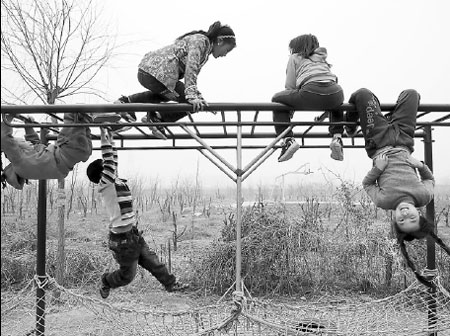
|
Students play between classes (top) and learn martial arts at Ririxin School. |
|
Zhang Dongqing, founder and headmistress of Ririxin School. |
(China Daily 10/07/2014 page5)
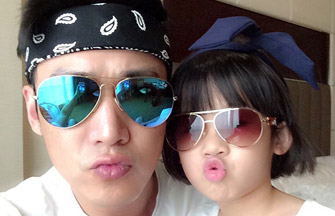
 Happy moments of actor Lu Yi with his daughter
Happy moments of actor Lu Yi with his daughter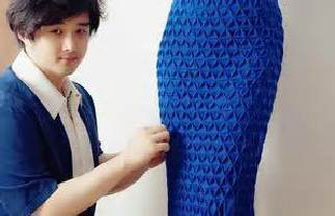
 Fashion designer bridges culture gap
Fashion designer bridges culture gap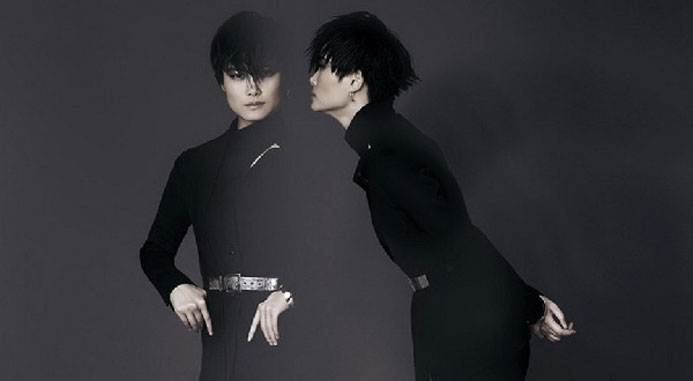
 Singer Li Yuchun poses for fashion magazine
Singer Li Yuchun poses for fashion magazine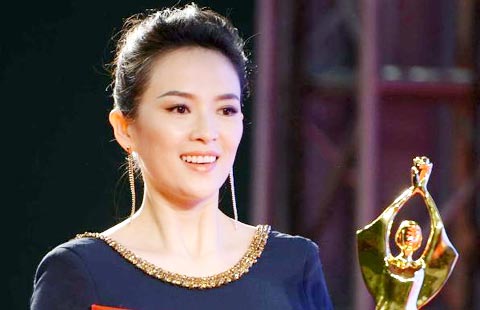
 Hundred Flowers Award ceremony opens in Lanzhou
Hundred Flowers Award ceremony opens in Lanzhou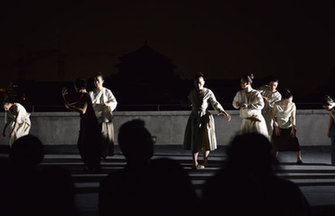
 A quiet designer
A quiet designer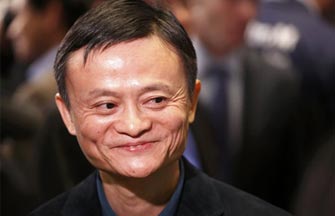
 Alibaba founder biopic could be underway
Alibaba founder biopic could be underway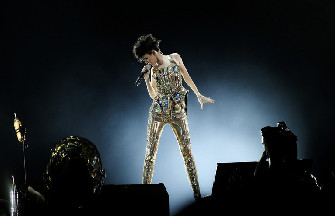
 Star Stefanie Sun holds concert in Beijing
Star Stefanie Sun holds concert in Beijing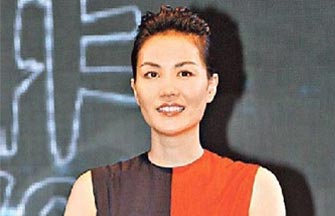
 Faye Wong's manager refutes star's drug rumors
Faye Wong's manager refutes star's drug rumors
Most Viewed
Editor's Picks

|

|

|

|

|

|
Today's Top News
HK occupiers urged to reflect on campaign
Big believer in real estate now a skeptic due to sluggish sales
WB cuts China growth forecast
World Bank weighs protest's economic impact
162,629 'phantom' staffers taken off govt payrolls
Holiday tourism fever continues
Smog, fog to shroud China
Services growth hits 8-month low
US Weekly

|

|
